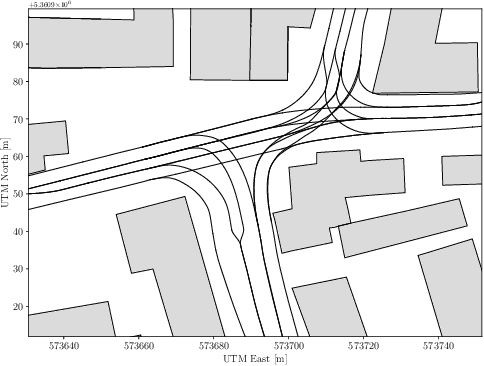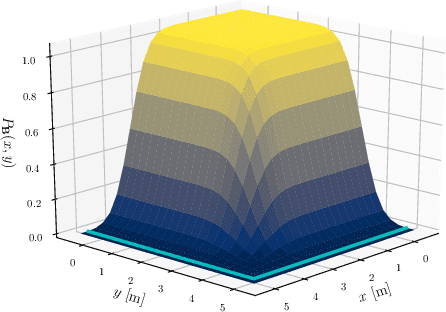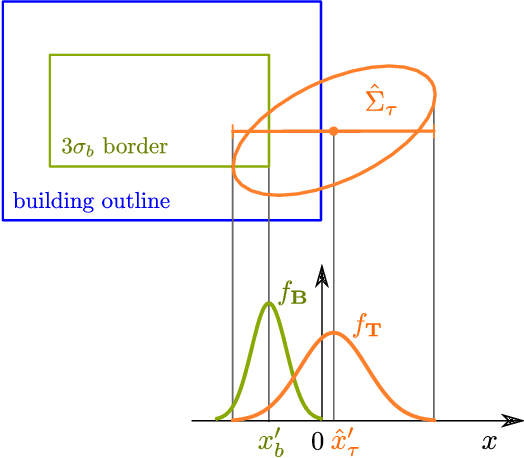Extended Existence Probability Using Digital Maps for Object Verification
Paper and Code
Mar 23, 2020



A main task for automated vehicles is a complete and robust environment perception. Especially, an error-free detection and modeling of other traffic participants is of great importance to drive safely in any situation. Therefore, multi-object tracking approaches, based on object detections from raw sensor measurements, are commonly used. However, false object hypothesis can occur due to complex, arbitrary scenarios with a high density of different traffic participants. For that reason, the presented approach introduces a probabilistic model to verify the existence of a track. Therefore, an object verification module is introduced, where the influences of multiple digital map elements on a track's existence are evaluated. Finally, a probabilistic model fuses the various influences and estimates an extended existence probability for every track. In addition, a Bayes Net is implemented as directed graphical model to highlight this work's expandability. The presented approach, reduces the number of false positives, while retaining true positives. Real world data is used to evaluate and highlight benefits of the presented approach, especially in urban scenarios.
 Add to Chrome
Add to Chrome Add to Firefox
Add to Firefox Add to Edge
Add to Edge